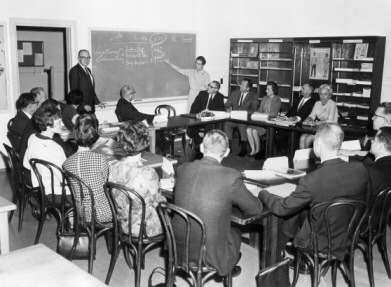Advice for New Teachers
As a new teacher, you will get all sorts of “advice” from teachers as to how to do your job. Mentorship and advice from teachers who have been in the profession for a long time is important and needed. But it all depends on how this advice is delivered. The first rule in advice for teachers is that no new teacher should be afraid to operate their classroom the way they want. I am a teacher who allows my students to carry on with a suitable amount of volume when working independently. Some days, I may reign it back and only except complete silence. Other times, I may allow them to talk and behave in a way that other teachers may consider a little bit too lax. But don’t confuse my classroom expectations with my classroom management. Your class is your own, period. Do with it as you may. Remember, you are their teacher, and they must respond to you. Ultimately they will respond best when they know and understand the true and authentic you. Don’t yell at your students if that is not your personality. There may be times when you may have to act a certain way to communicate a particular point. But a constant yeller is someone who has very little options in their classroom management “tool belt”. Take advice on strategies and techniques as needed. You are free to try out a few even. But understand that every teacher is different and every class is different. In the long run, you are going to come up with your own style, techniques, and methods of dealing with your students and managing your classroom.
There has been one valuable piece of advice I was given, subsequently tried, and since stuck with. And that is the model of being stern early on in the year and mellowing out later. It is much easier to start the school year a little more “rigid” and gradually tone it down. Being the “friend/teacher” early on and then eventually trying to “turn up” the sternness is a strategy that seldom works. Students are trying to negotiate their behavior with you on a daily basis. Everything they do, they say, they “get away with” is kept in mind – not just by the student who does it, but also by the 29 others that are watching. So in those first few weeks, set your personal expectations high; then you can gradually let your guard down.
One last thought on advice from teachers. Yes, “veterans” may have a lot of knowledge and lessons to give a new teacher. But remember what the new teacher has as well. A teacher of 15 years was giving me a laundry list of “insights” into the adolescent mind. After rambling on for a while I reminded her that while her advice is built on years of experience and is valid, so is mine. She has been teaching adolescents for the last 15 years, but 15 years ago I was the exact age of those adolescents I now teach! So what I lacked in experience I gained in relevance and relateability. Never count yourself short just because you are new and others have been at the teaching thing for longer. The experience factor usually balances out. The sincerity of the unique daily experience is forgotten or dulled with most veteran teachers. This does not happen with the new teacher. Every student’s problem is cared for. Every tough question you receive is reflected upon when the day is over. The simply hailing of me as “Mr.” is refreshing. These feelings and moments will inevitably fade, but in this time, new teachers still have that advantage of authenticity and complete sincerity with their craft. Everything matters because it seems to matter. And although I am not condoning or denouncing one factor over the other, sometimes as a new teacher, what you lose in experience, you gain in authenticity. To the new teacher, everything is sincere still. So take the advice from teachers for what it’s worth. But inevitably, it all balances out.
[share title=”Share this Post” facebook=”true” twitter=”true” google_plus=”true”]

